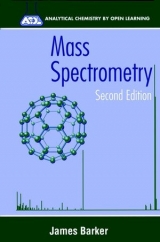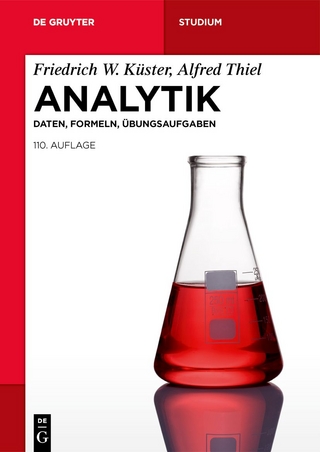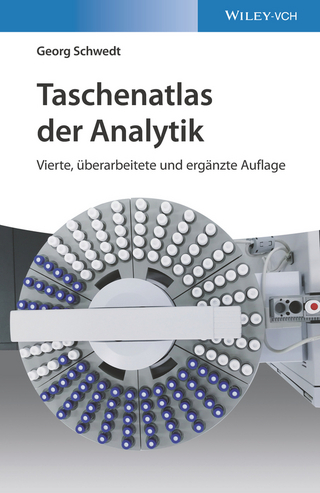
Mass Spectrometry
Seiten
1987
John Wiley & Sons Ltd (Verlag)
978-0-471-91389-4 (ISBN)
John Wiley & Sons Ltd (Verlag)
978-0-471-91389-4 (ISBN)
- Titel erscheint in neuer Auflage
- Artikel merken
Zu diesem Artikel existiert eine Nachauflage
Mass spectrometry has undergone a great deal of development as an empirical subject and many useful approaches to the analysis and identification of organic molecules have been developed without a detailed understanding of theory of ion behaviour. This work covers this field.
Mass spectrometry has undergone a great deal of development as an empirical subject and many useful approaches to the analysis and identification of organic molecules have been developed without a detailed understanding of theory of ion behaviour. This is also the way in which the subject is usually approached and it is the tack adopted here. That does not mean to say that an understanding of ion behaviour is not important - it is, but that understanding is still being developed and this book is designed for those wishing to use mass spectrometry now. To provide a good understanding of mass spectrometry, the basic theory of ion formation and behaviour, the instrumentation and the interpretation of the spectra of organic molecules are covered. There are also sections covering combined gas chromatography - mass spectrometry and liquid chromatography - mass spectrometry, which are two of the most powerful techniques available to the analytical chemist.
Mass spectrometry has undergone a great deal of development as an empirical subject and many useful approaches to the analysis and identification of organic molecules have been developed without a detailed understanding of theory of ion behaviour. This is also the way in which the subject is usually approached and it is the tack adopted here. That does not mean to say that an understanding of ion behaviour is not important - it is, but that understanding is still being developed and this book is designed for those wishing to use mass spectrometry now. To provide a good understanding of mass spectrometry, the basic theory of ion formation and behaviour, the instrumentation and the interpretation of the spectra of organic molecules are covered. There are also sections covering combined gas chromatography - mass spectrometry and liquid chromatography - mass spectrometry, which are two of the most powerful techniques available to the analytical chemist.
Introduction: Analysis by Mass Spectrometry, Ionisation of Molecules, Fragmentation, Interpretation of Mass Spectra; The Mass Spectrometer; Ionisation and Ion Sources; Mass Analysers; Metastable Ions; Ion Detection and Recording; Detection and Use of Isotopes in Mass Spectrometry; Modes of Fragmentation; Fragmentation of Common Functional Groups: Alcohols, Ethers, Phenols, Carbonyl Compounds, Amines, Hydrocarbons, Halocompounds, Nitrocompounds, Heterocycles and Sulphur Compounds; Chromatography-Mass Spectrometry: Gas Chromatography-Mass Spectrometry, Liquid Chromatography-Mass Spectrometry.
| Erscheint lt. Verlag | 30.9.1987 |
|---|---|
| Reihe/Serie | Analytical Chemistry by Open Learning |
| Zusatzinfo | illustrations |
| Verlagsort | Chichester |
| Sprache | englisch |
| Maße | 150 x 230 mm |
| Gewicht | 850 g |
| Themenwelt | Naturwissenschaften ► Chemie ► Analytische Chemie |
| ISBN-10 | 0-471-91389-8 / 0471913898 |
| ISBN-13 | 978-0-471-91389-4 / 9780471913894 |
| Zustand | Neuware |
| Informationen gemäß Produktsicherheitsverordnung (GPSR) | |
| Haben Sie eine Frage zum Produkt? |
Mehr entdecken
aus dem Bereich
aus dem Bereich



